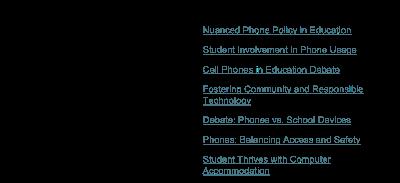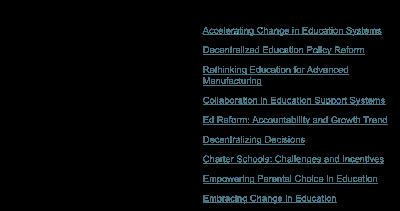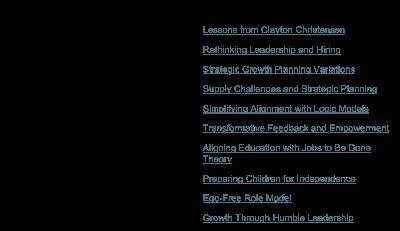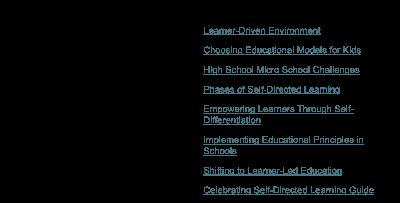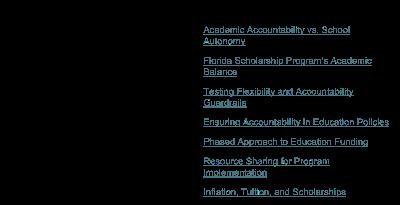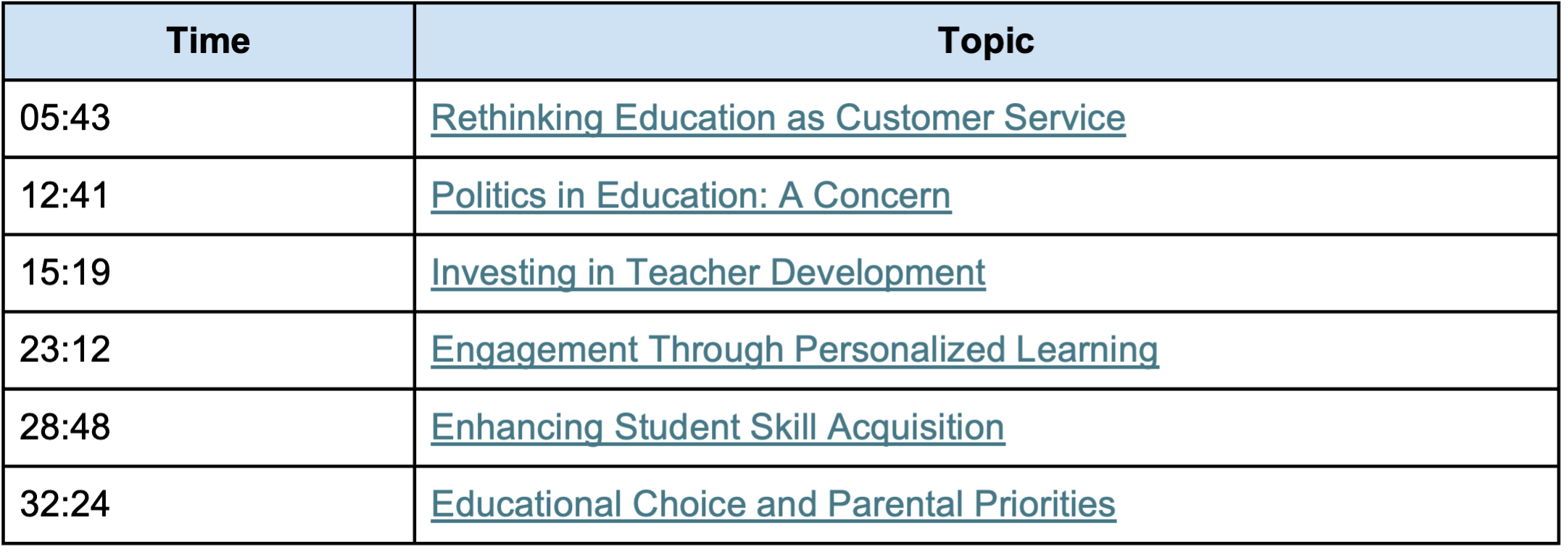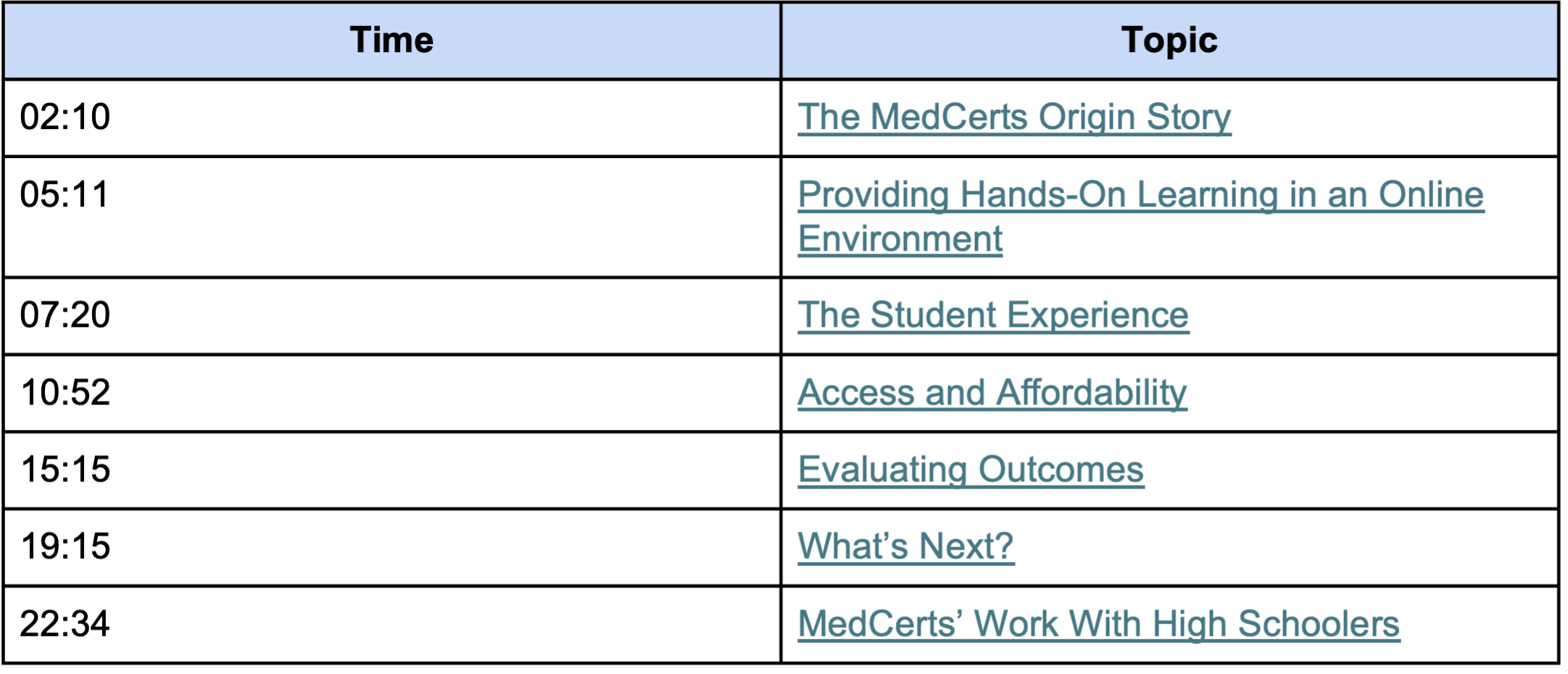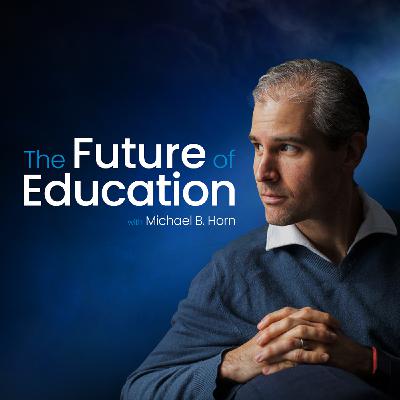Reject One-Size-Fits-All Bans on Phones in School
Description
On this episode, Ulric Shannon, Executive Director of the Surge Institute in Chicago, and Kyla Mathews, principal of Epic Academy High School, join me to talk about the controversial issue of banning smartphones in schools. While acknowledging the negative impact of excessive phone use, both guests argue against blanket bans and instead emphasize the importance of teaching responsible use and engaging students in setting digital norms. They discuss how cell phones can serve educational and social-emotional purposes when integrated thoughtfully, highlight the real-world challenges of device access in classrooms, and stress the importance of fostering trust with students and parents.
Michael Horn
Welcome to the Future of Education. I am Michael Horn and you're joining the show where we are dedicated to creating a world in which all individuals can build their passions, fulfill their potential, and live lives of purpose. And as we figure out how to do that, we do so right now against a bleak set of statistics, if you will. We have a mental health crisis among teens. We have rampant disengagement and chronic absenteeism for many high schools. And social media, which is often accessed through smartphones, has been a leading suspect in the cause of this. And the result from all that is that states and many districts are banning smartphones in schools in a variety of ways right now across the nation.
Nuanced Phone Policy in Education
Now, I'll put my cards on the table. I've been arguing for a more nuanced position rather than a blanket ban from on high, where educators have the power to ban phones in their classrooms when it makes sense, but they also have the power to use them when it will advance an educational or engagement purpose. But it does feel at the moment like there's a tide against any nuanced positions in this country in general, I will say. And yet we have a couple educators joining us today who I'm thrilled to get their perspective because they have also found a nuanced way through this conversation that I'm really excited and eager to learn from. So first we have Ulric Shannon. He's the executive director of the Surge Institute in the Chicago region. Surge is an organization dedicated to cultivating black, brown and Latino leaders to transform education. And then we have Kyla Mathews, who is a principal of Epic Academy High School, which is a charter school in Chicago focusing on college going for its graduates.
And Kyla is a Surge fellow at the moment. So, Ulric, Kyla, great to see you both. Thanks so much for joining me.
Kyla Mathews
Thank you for having us.
Ulric Shannon
Yeah, thank you so much for having us, Michael.
Michael Horn
Yeah, you bet. I'm excited to learn from you on this topic, but let's, let's get right into it, right? 21 states, I think at latest count, I believe, have passed laws restricting regulating cell phone usage in schools. We have the author, John Haidt, who's on the warpath with his best selling book advocating for a lot of these laws and so forth. Kyla, you run a school that's one to one device school. And as I understand it, you have been arguing that these folks have it wrong, that a blanket ban doesn't make sense. So at a high level for right now, help us understand why that's been your position.
Kyla Mathews As a Principal of Epic and a former assistant principal of a large urban school and a parent of a generation Alpha student. People can't think that a broad brush of no cell phones is like the way to go. But what we're learning is that the children that we service right now have not ever not had a phone in their hand. And so being mindful of your audience, being mindful of who you service, you have to be clear about that. And so that's why it's not the right way to go to ban the cell phones without any clear communication expectations and a buffer or filler to replace something that's a part of people's lives.
Michael Horn
So I want to dig into that and a little, a little bit more. But Ulric, maybe lay out your perspective first because you're working, as I understand it, not just with Kyla, but with lots of school leaders in Chicago. What do you see? Because I'm hearing that a lot of educators are really loving these bans. Once they're in place, they're saying, thank God someone else made the decision for me. In effect, what are you seeing on the ground?
Ulric Shannon
Yeah, I think there's a number of things that are at play here. I think districts are under a lot of pressure, right, to improve academic outcomes. And so they see that as phone bans as a quick fix to that. Right. Like we need to have like deeper conversations around that and actually engage students in that 1. 2 I would say that schools, at the school level, they're responding to a growing concerns related to classroom distractions, cyber bullying and student mental health, as you talked to earlier. And we have to admit that the pandemic accelerated that. Right.
The use of technology. Now educators are actually seeing how constant student interaction or phone usage can actually undermine their attention and their community connection, which is also important inside the classroom. So I think if we look at different levels within the education system and the structure, I think people are just quickly responding because there is some urgency around the preparedness for our young people to go off into the world, whether it's academically prepared, socially prepared, and a number of other things. And, you know, cell phones can sometimes feel like a little bit of a distraction, maybe a lot of distraction, and the root of a lot of just, you know, teenage or young people issues because they have so much access to each other. So I think it's just a quick response to a greater outcome, some good intentions, but maybe some poor outcomes.
Michael Horn
Well, so, so stay on that because. So I think what I'm hearing, Kyla, right from you is phones like they're with the kids. Whether we like it or not, they are the tableau. Ulric, you're saying, if I'm hearing correctly, like, so there's sort of a snap reaction, we'll just take them away and somehow solve the problem. I think a lot of educators are saying it does solve the problem, like, you know, behavior seems better in their schools and classrooms and things like that. So help me understand like why this might not actually be the right answer. And Ulric, maybe start with you, like why, why is it just that a snap reaction rather than maybe attacking the root cause of what's going on?
Student Involvement in Phone Usage
Ulric Shannon
I think we have to recognize that. I mean, I think Kyla spoke to her earlier, like they had phones in their hands since they were born, right? And phones can actually be a lifeline for students navigating complex identities and social environments. And so it can be kind of a coping tool for students. But like I said earlier, we must understand the why behind the behavior and not just try to control it. And we know that research says that excess usage of phones and social media can actually increase anxiety or in comparison to disengagement. But I think if we can actually bring in students into that process, it doesn't have to be all or nothing. They can actually co-design some of those norms with students. Maybe it's creating a tech-free zone or structure breaks, informing some digital literacy courses that can actually support healthy usage and boundaries of cell phones.
I think there is certainly things that we can do, but I think maybe some of the capacity issues within buildings make that a little bit of a challenge when you may not have all the bodies and resources inside of your school to actually tend to those needs and a loving and and caring way that you would like to have inside of your schools.
Michael Horn
Well, so Kyla, let me go to you there, like what are you doing, right, to reset this? What's a better way forward in your view?
Cell Phones in Education Debate
Kyla Mathews
I [agree with] everything Ulric just said because we have to be clear whether the cell phone is a distraction or not. And we also have to understand from a youth's perspective that if I release my cell phone to you, am I trusting you as a person, as my teacher? And then secondly, what are you going to replace with my level of entertainment if we want to bring in the social media part? But I have an antidote to this discussion because a number of my staff members who do not have cell phone issues, they just realize that they can capitalize on their age gap or the non existent age gap, like they're Very accepting that cell phones do exist, but I'm going to teach you how to use it responsibly. Even being really specific in a history class the other day, last month, part of an evaluation, part of my popping in a teacher was clear with students about why Twitter is not a good source for information and it created a healthy debate with students. So, now we're not arguing about the phone and being distracted by the content or my teacher isn't accepting of the way I receive information which actually bringing it into the conversation and having a debate about why primary sources are still the way to go.
Michael Horn
So in that case, Kyla. Right. Like it's sort of an entry point into a broader conversation, it seems like. So, so, so part of the job is like, is that part of the answer that teachers, I mean it feels like we asked teachers to do a ton of stuff today. Do they have another responsibility on, on, on their, sort of on their desks, if you will, or is there, you know, is this part

